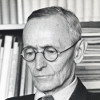“ The things of this world which our senses perceive have no true being; they always become, they never are ”
Arthur Schopenhauer, The World as Will and Representation (1819). copy citation
| Author | Arthur Schopenhauer |
|---|---|
| Source | The World as Will and Representation |
| Topic | senses world |
| Date | 1819 |
| Language | English |
| Reference | |
| Note | Translated by R. B. Haldane and J. Kemp |
| Weblink | http://www.gutenberg.org/files/38427/38427-h/38427-h.html |
Context
“This extends even to our own ego, and we know it only as phenomenon, and not according to what it may be in itself.” This is the meaning and content of the doctrine of Kant in the important respect we are considering. What Plato says is this:—“The things of this world which our senses perceive have no true being; they always become, they never are: they have only a relative being; they all exist merely in and through their relations to each other; their whole being may, therefore, quite as well be called a non-being. They are consequently not objects of a true knowledge”
source


